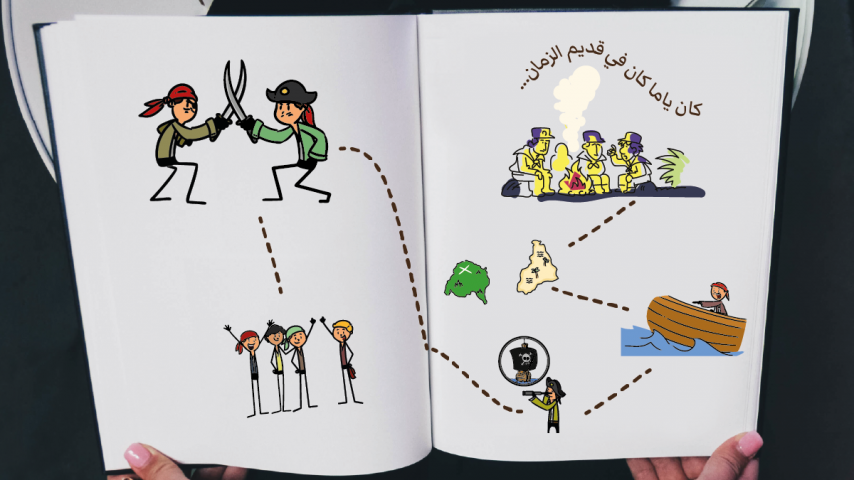
You might wonder what the connection is between telling stories and learning Arabic. Children and adults recall details from stories effortlessly. Whether it’s lines from a well-known fairytale classic or bedtime readings of the much-loved Gruffalo, the benefits of storytelling apply to anything we want to retain.
The powerful context of an engaging story strengthens learning and language acquisition. A learner’s memory, comprehension and vocabulary all benefit because stories entertain us, allowing us to learn language without realising. A truthful narrative will tap into our emotions. This puts us at ease and creates a personal connection with the scenario presented. It also provides us with a quick and relaxing way to process something new and challenging, like the Arabic language!
Stories expose us to a greater vocabulary. The repetition of words makes them easier to remember. Providing context, we automatically learn how these words come together. We can then construct sentences without focusing on complicated grammar rules.
Stephen Krashen, Professor Emeritus at the University of Southern California, describes how good methods are based on interesting stories where the learner gets so interested in the story that they forget it’s in another language.
With this in mind, we deliberately developed a story-based video library of Arabic content. We want learners of Arabic to stay motivated and thrive in their quest to learn and attain fluency in the language. We also want them to enjoy it as much as we do!
Arabic Workshop is a listening resource with comprehensible input and spiral curriculums at its heart. Learn Arabic by listening with engaging whiteboard animations that bring stories to life. Learn new words with a vocabulary builder that has a talking transcript and dictionary function. Progress is carefully mapped to popular frameworks and progress is in small, steady steps.
Featured Image: Photo by John Schnobrich on Unsplash






